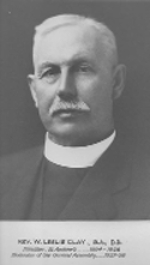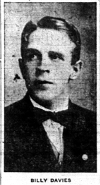By Montanna Mills
“Public Cheerfully Accepts Ruling Closing Meetings”
The above was a headline in the October 9, 1918 edition of the Victoria Times. The article went on to detail how “all public gatherings and entertainments [will] come to a standstill,” but that, in spite of impediments to leisure, the citizens of Victoria had accepted these regulations “cheerfully.”[1] If we are to believe what we read, it would appear that the people of the city of Victoria happily accepted a lack of public professional and social gatherings with no protest whatsoever.
However, when we take a closer look, the account that the author of this newspaper article gives does not truly represent how the influenza outbreak of 1918-1920 affected the leisure activities of Victoria’s citizens. This section will use newspaper sources to figure out how people in Victoria took part in leisure during the outbreak. This article will focus on October 1918, when regulations were in effect banning some types of public gatherings.
“Regulations … compel the closing of all places of assembly”
The order-in-council that banned public meetings in Victoria and throughout British Columbia was pretty extensive – the regulation applied to “places of assembly,” which included the following:
- churches;
- schools
- public libraries;
- buildings in which leisure activities took place, such as pool halls, dance halls, fraternal order lodges, and skating rinks;
- clubs;
- public fairs; and
- buildings in which public or private dances were held.[2]
While this list was quite exhaustive, the provincial government recognized that it did not cover every conceivable instance in which large groups may gather, and so the Provincial Board of Health reserved the right to add to this definition of places of assembly as needed.
Church

Open air events, however, were not banned, and it appears that Victorians took advantage of that fact. While some churches cancelled their services and advertised Bible passages to study at home, other congregations opted to have outdoor services.[3] These open air services were not explicitly banned by the Medical Health Officer, although there appears to have been some tension over open air church services in particular. W. Leslie Clay, who was the pastor at St. Andrew’s Presbyterian, wrote to editor of the Victoria Times to explain what he understood to be a misunderstanding between himself and the Medical Health Officer. Clay wrote that he had asked the Medical Health Officer on at least two occasions if it would be acceptable to continue church services. Allegedly, he had been told that open air church services would be fine, as long as people would “exercise common sense” and “not pack themselves closely.” [4] The decision to hold open air services seems to have been a controversial one, as Clay opens his letter by saying that “[the] accredited utterances in the press on the subject of the open air services announced for yesterday require a brief statement from those who interested themselves in convening such gatherings.”
Athletics and Leisure
Church services were not the only events to take place out of doors. Some sporting events were cancelled, but many others

continued to occur. One man named Billy Davies started a rugby club in the first few days of the outbreak (unfortunate timing on his part!). He continued to run the rugby club through at least the first few weeks of the outbreak, and the news reports imagined these events as a sort of rebellion against the tyranny of the flu. One of the articles was headlined “Spanish ‘Flu’ Not to Stop Rugby Game.” The article noted that the restrictions put on the city by the health authorities meant that many people were looking for new ways to have fun without breaking the rules. Outdoor sports like rugby, cricket, and golf were a perfect solution. Soccer was eventually postponed. However, this was not because of a desire to stem the spread of the flu. In fact, the weather was poor, and many of the players were incapacitated with the influenza! [5]
Having Fun In Quarantine
Soldiers at Willows Camp were quarantined in October, 1918 in order to prevent the spread of the virus. In attempts to keep up morale, many different amusements were engineered for the quarantined soldiers. The YMCA and the IODE were instrumental in this enterprise, by soliciting donations for the Willows Camp library[6] and showing films (outdoors, of course).[7]
Dancing the Night Away
While some people tried to enjoy leisure time without breaking regulations, others chose to disregard the rules. In one such case, a Mrs. Boyd continued to hold dances on Saturday nights and teach dance lessons well after the ban on indoor meetings was established. The dances were advertised daily until October 25th. Of course, without direct testimony from Mrs. Boyd, her associates, or her customers, it is impossible to ascertain why she opted to continue the dances. Did she think the regulations were unnecessary or unjust? Was she handing out face masks at the door and encouraging people to wash their hands in order to prevent the spread of the disease? Was she more concerned with turning a profit than helping stop the influenza outbreak? Unfortunately we don’t know. What we do know is that there were at least some instances of people not taking the regulations seriously.
1.”Public Cheerfully Accepts Ruling Closing Meetings.” Victoria Times, October 9, 1918, 15.
2.“Prohibition of Meetings to Check Spread of Germs,” Victoria Times, October 8, 1918, 7.
3.”Church Notices,”Victoria Times, October 12, 1918, 8.
4. Clay, W. Leslie. “Open Air Service”Victoria Times, October 14, 1918, 4.
5. “Soccer May Be Off Until Ban Is Lifted.”Victoria Times, October 28, 1918, 8.
6.”Reading Matter For Quarantined Soldiers.” Victoria Times, October 16, 1918, 9.
7.”Outdoor Movie Show at Willows Camp.” Victoria Times, October 25, 1918, 9.
